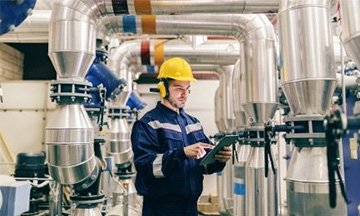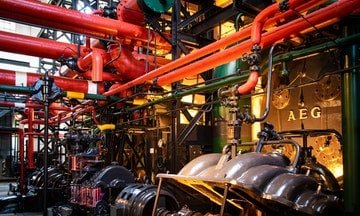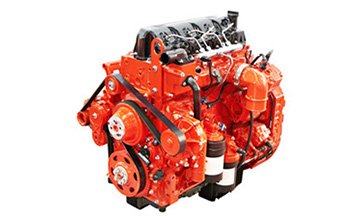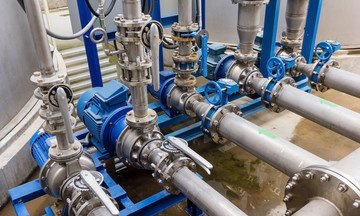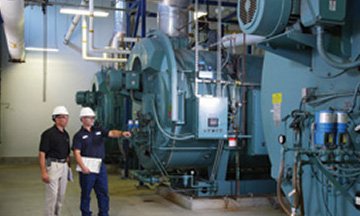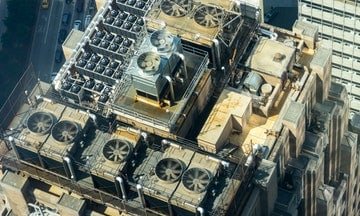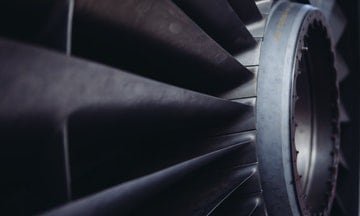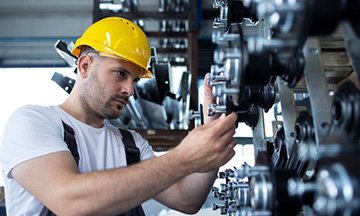Fired Process Heater Operator Course
| Date | Format | Duration | Fees | |
|---|---|---|---|---|
| 22 May - 24 May, 2024 | Live Online | 3 Days | $1750 | Register |
| 03 Jun - 07 Jun, 2024 | Live Online | 5 Days | $2250 | Register |
| 14 Jul - 18 Jul, 2024 | Live Online | 5 Days | $2250 | Register |
| 02 Sep - 06 Sep, 2024 | Live Online | 5 Days | $2250 | Register |
| 11 Nov - 15 Nov, 2024 | Live Online | 5 Days | $2250 | Register |
| 02 Dec - 10 Dec, 2024 | Live Online | 7 Days | $3147 | Register |
| Date | Venue | Duration | Fees | |
|---|---|---|---|---|
| 13 May - 15 May, 2024 | London | 3 Days | $4475 | Register |
| 13 May - 17 May, 2024 | Dubai | 5 Days | $4750 | Register |
| 17 Jun - 21 Jun, 2024 | Amsterdam | 5 Days | $5695 | Register |
| 17 Jun - 21 Jun, 2024 | Dubai | 5 Days | $4750 | Register |
| 08 Jul - 12 Jul, 2024 | Dubai | 5 Days | $4750 | Register |
| 04 Aug - 08 Aug, 2024 | Doha | 5 Days | $4950 | Register |
| 12 Aug - 16 Aug, 2024 | Dubai | 5 Days | $4750 | Register |
| 16 Sep - 20 Sep, 2024 | Dubai | 5 Days | $4750 | Register |
| 21 Oct - 25 Oct, 2024 | Dubai | 5 Days | $4750 | Register |
| 04 Nov - 08 Nov, 2024 | Dubai | 5 Days | $4750 | Register |
| 25 Nov - 29 Nov, 2024 | Houston | 5 Days | $5695 | Register |
| 09 Dec - 27 Dec, 2024 | Kigali | 15 Days | $13500 | Register |
| 23 Dec - 27 Dec, 2024 | Dubai | 5 Days | $4750 | Register |
Course Overview
What does Fired Process Heaters do?
Fired process heaters are essential tools in petroleum refineries and plants, chemical plants, and other industrial facilities. Also known as process heaters, they are significantly used in refineries and petrochemical plants because they heat and vaporize the hydrocarbon fluids to create valuable biproducts like diesel, gasoline, and jet fuel. They are a major consumer of energy in such locations, and their correct function is essential for the safety, production capacity, and profitability of the premises.
What does Zoe’s “Certified Fired Process Heater Operator Course” involve? This training program will provide you with detailed insight into the design parameters and limitations of thermal/hydraulic fired process heaters. It will include topics like furnace design, process factors, field appraisal of fired heaters, troubleshooting common heater problems, burner operation, instrumentation, inspection and turnaround items, emissions, and new heater designs.
What is a heat certification?
Additionally, the design, operation, and troubleshooting of shell and tube heat exchangers, plate heat exchangers, and air-cooled heat exchangers will also be discussed in detail. This completes the certification course.
This Zoe training course will provide you with the knowledge and applied skills required to enhance the undertaking, profitability, and safety of a plant’s fired heaters.
Course Objectives
Upon completing this Certified Fired Process Heater Operator Course successfully, participants will be able to:
- Explain how fired heaters function and the role that each part plays
- Describe key operating parameters and standard protocols to follow
- Appraise the performance of heat transfer equipment and identify any gaps
- Recognise the best practice operation procedures of heat exchangers and implement them in different environments
- Detect the problems of heat exchangers and discuss the feasibility of the recommended solutions in various circumstances
- Classify safe operation procedures for fired heaters and discuss how they can be implemented
- Distinguish and list the applicable codes and guidelines for fired heaters and plan to benchmark them in your organisation
- Recognise typical problems in the equipment or its utilisation and identify possible causes and resolutions
- Discuss key inspection and turnaround items, assess potential risks and develop a risk management and business continuity plan
Training Methodology
This collaborative Certified Fired Process Heater Operator Course will comprise the following training methods:
- Lectures
- Seminars & Presentations
- Group Discussions
- Assignments
- Case Studies & Functional Exercises
Like all other Zoe courses, this professional training program follows the ‘Do-Review-Learn-Apply’ model.
Organisational Benefits
Companies who nominate their employees to participate in this Certified Fired Process Heater Operator Course can benefit in the following ways:
- Benefit from training your employees on the definition and importance of mechanical information, along with the different roles played as a Certified Fired Process Heater Operator
- Enable better specification of new and replacement of old elements of a Fired Process Heater system
- Delegates will be able to apply the gained knowledge through this course and practice skills and that will impact their respective companies
- Employees will be able to identify and maintain the applicable codes and standards for fired heaters
- Improve the reliability of your plant/premises by enhancing staff skills
- Minimise pollutant emissions by optimising your operational processes
- Maintain better organisational safety records with the implementation of standards and guidelines
Personal Benefits
Individuals who participate in this Certified Fired Process Heater Operator Course can gain from it in the following ways:
- Hone your ability to move across worldwide industries like oil and gas, automobile, production, construction, aeronautics, etc.
- Secure a relevant job anywhere in the world with the right knowledge as a Certified Fired Process Heater Operator
- Get promoted in your current job in the Fired Process Heater field
- Acquire the professional skill needed to perform your job with efficiency
- Master the knowledge and techniques to see the future as a Certified Fired Process Heater Operator
- Learn how to do a good job with your machine
- Understand why it is important to do be an expert with your machine
- Understand an existing program better
- Get an opportunity to work through hands-on exercises in detail to gain the skills needed to facilitate a Fired Process Heater study
- Gain the skills to plan, manage, facilitate, and scribe for a Fired Process Heater project
Who Should Attend?
This Certified Fired Process Heater Operator Course would be suitable for:
- Process Engineers/Designers
- Mechanical Engineers/Designers
- Heat Transfer Engineers/Designers
- Supervisors and Operators
- Process Plant Shift Leaders
- Environmental and Safety Technicians
- Mechanical Technicians
- Maintenance Engineers
- Project Engineers/Managers
- Maintenance Personnel
- Machine and Technical Operators
- Individuals interested or involved in the design, specification, and retrofitting of fired heaters
Course Outline
Module 1: Fundamentals of Heat Transfer and Combustion Protocols
- Introduction to Conduction, Convection, and Radiation
- Fouling and Heat Transfer
- Combustion Reactions
- Lean, Rich, and Stoichiometric Combustion
- Excess Air and Combustion Efficiency
- Premixed and Diffusion Combustion
- Techniques for NOx Control
Module 2: Shell and Tube Heat Exchangers
- Different Types of Heat Exchangers
- Shell and Tube Heat Exchangers: Performance
- Shell and Tube Heat Exchangers: Operation
- Monitoring and Solving Issues in Shell and Tube Heat Exchangers
Module 3: Compact Heat Exchangers
- Main Components of Air-Cooled Heat Exchangers
- Operation of Air-Cooled Heat Exchangers
- Troubleshooting of Air-Cooled Heat Exchangers
- Types of Plate Heat Exchangers
- Main Components of Plate Heat Exchangers
- Compact Heat Exchangers: Performance
- Operation of Plate Heat Exchangers
- Troubleshooting of Plate Heat Exchangers
Module 4: Components and Their Role In The Operation of Fired Heaters
- Taxonomy of Fired Heaters
- Application of Fired Heaters
- Parts of Fired Heaters
- Control of a Fired Heater
- Operating a Fired Heater
- Responding to Abnormal Operating Conditions
Module 5: Monitoring and Troubleshooting of Fired Heaters
- Aspects Affecting the Performance of Fired Heaters
- Optimizing Fired Heater Operation
- Performance Monitoring
- Draft, Coking, and Skin Temperature
- Troubleshooting of Fired Heaters
Module 6: Deterioration Mechanisms
- Deterioration of Fired Heaters
- Deterioration of Boiler Tubes
- Deterioration Mechanisms of Other Components
Module 7: Frequency and Timing of Inspections
- Fired Heaters Inspection Frequency
- Inspector Qualifications
- General Preparatory Work
